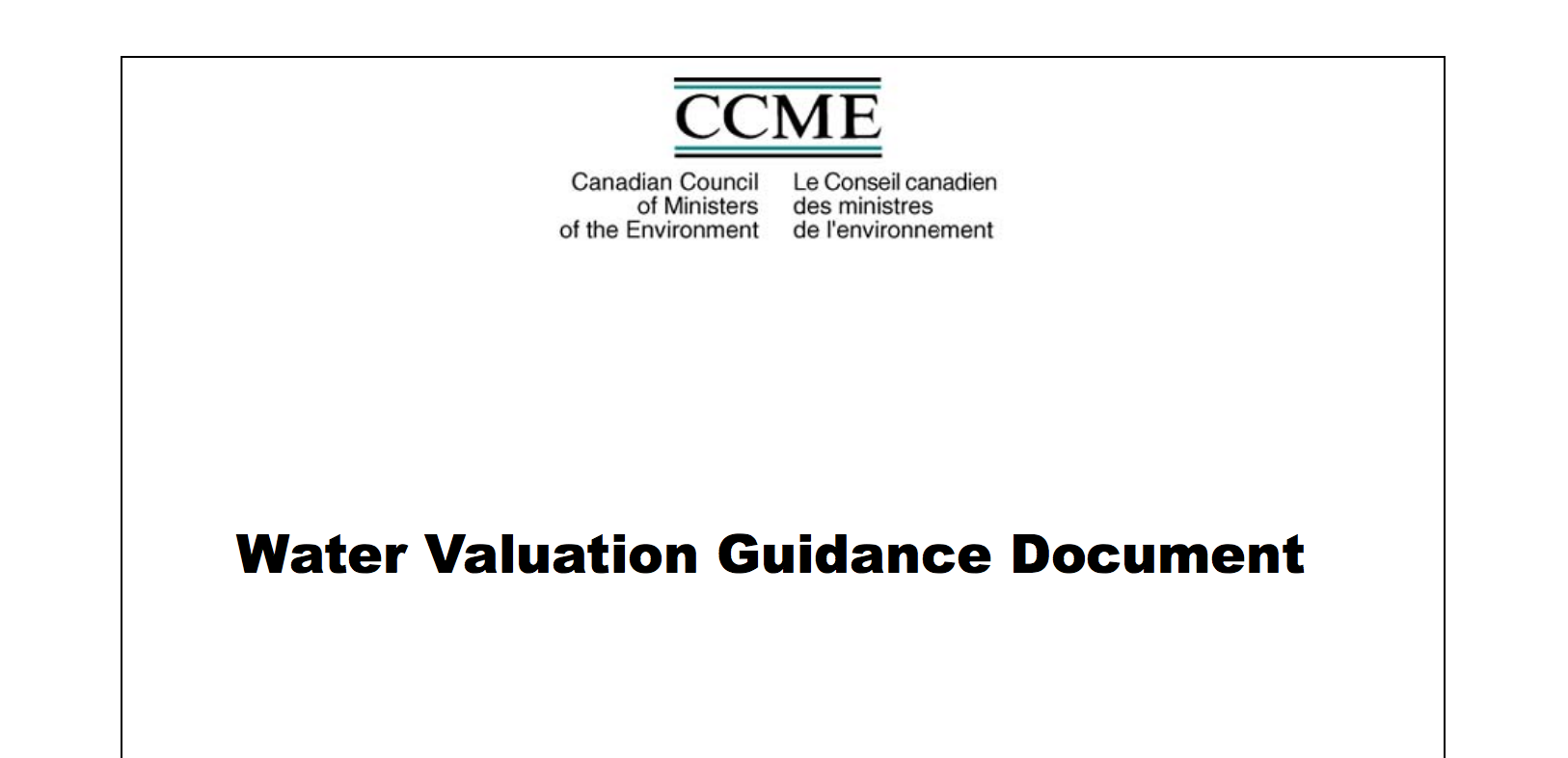This ‘Water Valuation Guidance Document’ was commissioned by the Canadian Council of Ministers of the Environment (CCME) Water Agenda Development Committee (WADC). It is a Canada-wide reference document for water resource decision-makers – in federal, provincial and territorial government, Aboriginal groups and local municipalities and boards – to help establish how water valuation can assist in addressing water management issues, particularly in relation to conservation actions, infrastructure investment, water quality standard setting, water pricing, water allocation and compensation for use or damage.
Information about the value of the natural environment, its component resources, and the range of goods and services it provides is increasingly being used by policy makers. Understanding these values can lead to better informed decisions. There are different types of “value” – including economic, cultural, spiritual and traditional values, as well as intrinsic value (i.e. value in its own right). When addressing a particular issue, it is important to consider all values that are relevant.
The guidance document is focused specifically on the application of water valuation and is intended to enable users to integrate water valuation into decision-making. This requires that water resource managers identify situations in which valuation evidence can assist and improve decision-making. This includes establishing the extent of evidence required and the most appropriate approach to valuation given time and resource constraints. While advice should be sought from specialist valuation experts, it is water resource managers who are best placed to formulate the decision context and interpret the outcomes and any limitations of the analysis for the purpose of informed decision-making.
Often the economic value of water is of particular interest for decision-making because economic values about other aspects of an issue are often available and it would be helpful to be able to compare the economic values of the different aspects of the issue. The document provides guidance for determining the economic value of water, accounting for both the use of water (e.g. household water supply, irrigation for agriculture, etc.) and the ecosystem services provided or supported by water resources (e.g. nutrient cycling, habitat provision, recreation, etc.). ‘Valuation’ is also commonly referred to as monetization, since the purpose of valuation is often to assign a monetary value – i.e. a dollar amount – to a change in the provision of commodity or service. There is a variety of so called valuation methods that are used to gather and interpret water valuation evidence and their potential role for informing water management decisions is discussed in the document.
Guidance documents are often (but mistakenly) desired to be prescriptive about the appropriate approach for any given situation. The scope of water valuation in terms of the issues it can address and the decision-making contexts it can inform is too broad and varied to prescribe a ‘fit-for-all’ list of approaches. Instead, the aim is to set out a framework within which water resource managers can systematically review key questions in order to identify an appropriate course of action that fits each case.
Read the report here.













